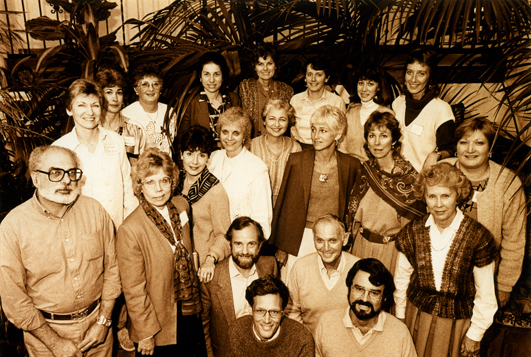WCOE: Planning for Hospice, Difficult Conversations, and Second Opinions
| What Caught Our Eye (WCOE) Each week, we take a closer look at the cancer policy articles, studies, and stories that caught our attention. |

Post by Shelley Fuld Nasso
As avid followers of Susan Gubar’s series in The New York Times on living with cancer, we read her most recent installment, “Living with Cancer: A Tour of Hospice” with interest. She described her fear of the pain, anxiety, and dementia that can accompany dying and her desire to avoid excessive treatment at the end of life.
“From the moment of diagnosis, I knew that I did not want to end up in a hospital, and especially not in the I.C.U. — with its blinking and beeping machines, its fluorescent lights never turned off, its frantic rhythms of intubations and C.P.R.s and codes and respirators, its endotracheal and feeding tubes, its infections and psychoses. It shocked me to learn that this is what happens to one out of five Americans,” she wrote.
To learn more about her options, Dr. Gubar visited Hospice House in Indiana, where Dr. Robert Stone gave a tour of the hospice, addressed her questions and fears, and reassured her about the tools available to control pain at the end of life.
This kind of planning for hospice is something that Dr. Thomas Smith of Johns Hopkins, and also a Cancer Policy Advisor to NCCS, advocates. He recommends that oncologists schedule a hospice information visit when an individual has three to six months to live.
“About a third of patients go into hospice with less than a week to live, and everyone is scurrying around trying to get the patient comfortable when the outcome for that patient was predictable 3 to 6 months before. Most of us choose not to have discussions about things like hospice, do-not-resuscitate [orders], and advanced medical directives until there are no more chemotherapy options left. That allows us to avoid a hard conversation, but it doesn’t serve as well to prepare the patients and families for what’s coming,” Dr. Smith said in an interview with the NCI Cancer Bulletin.
The cost of cancer care is a frequent topic of conversation among policymakers, patients, and physicians. From a cost and policy perspective, hospice care is something we should encourage, because it is both supportive of patients and their families and better for the system overall. Gubar points out that hospice care is $550 per day rather than $5,000 per day for ICU care.
Another article that caught our eye this week was a Huffington Post column by Dr. Cary Presant, “Why Variability in Cancer Care Recommendations Means You Should Consider Second Opinions.” He cited a study in the Annals of Internal Medicine that found lack of consensus about treatment recommendations, high variation in treatment choices, and divergence from treatment guidelines. (Sadly, Dr. Jane Weeks, one of the lead authors for the study and a leader in the field of cancer outcomes and comparative effectiveness research, died of cancer last fall.)
Given the high degree of variability, even among the top cancer centers in the country, Dr. Presant advises patients to “Make sure your care is following the best guidelines, or if your doctor is not following best guidelines, that the doctor has a good explanation of why you actually need something different.”
He also advises patients to get a second opinion, or even a third opinion if the first two recommendations are different. “Good patients (and their families) get good information which gets good care which gets the very best outcomes. And often, good patients need to get second opinions.”
The fact that treatment recommendations can vary so widely is a source of stress and anxiety for many patients. Reconciling differences in expert opinions can be challenging. The authors of the study in Annals of Internal Medicine conclude that for areas with high variation, attention to patient preferences is critical. Our “Take Charge of Your Care” tools help individuals with cancer to consider and communicate with physicians and family about their needs, values, and preferences for their care.
| Post by Shelley Fuld Nasso. Connect with Shelley on Twitter @sfuldnasso. |





